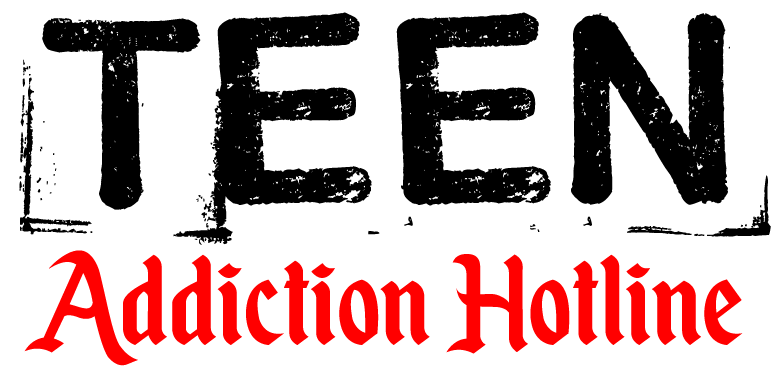Washington Teen Addiction Hotline
Washington Teen Substance Abuse Helpline
Substance abuse is a significant issue among teenagers in Washington. Commonly abused substances include alcohol, marijuana, prescription medications (e.g., opioids or stimulants), and other illicit drugs.
Washington legalized recreational marijuana use for adults in 2012. This change in legislation has raised concerns about the potential impact on teenage marijuana use and access.
Washington, like many other states, has been impacted by the opioid epidemic. Efforts have been made to address opioid abuse and reduce opioid-related overdoses among young individuals.
The use of e-cigarettes, including vaping products, has also become a concern among teenagers in Washington. Health officials have been monitoring the rise in vaping-related illnesses and working to educate young people about the risks associated with these products.
Several factors contribute to the risk of teenage substance abuse in Washington. These may include peer pressure, family history of substance abuse, adverse childhood experiences, mental health issues, and exposure to substance use in the community or media.
Substance abuse during adolescence can have serious consequences on physical and mental health. It can lead to impaired brain development, academic problems, risky behaviors, and an increased risk of developing addiction later in life.
Washington has implemented various prevention programs and initiatives to address teenage substance abuse. These efforts focus on education in schools, raising awareness, promoting healthy behaviors, and providing resources for teenagers and parents.
For teenagers struggling with substance abuse, Washington offers treatment and support options. These may include counseling, therapy, support groups, and residential treatment centers specifically designed to help adolescents overcome addiction. If you need immediate medical attention, call 911 Now.
Substance Abuse Statistics Washington Teenagers
Teenagers in Washington are 33.36% more likely to have used drugs in the last month than the average American teen as reported by the National Center for Drug Abuse Statistics (NCDAS)
- 61,000 or 11.11% of 12- to 17-year-olds report using drugs in the last month.
- Among them, 88.52% report using marijuana in the last month.
- 16.21% of all 12- to 17-year-olds report using marijuana in the last year.
- 0.55% report using cocaine in the last year.
- 0.18% report using methamphetamines.
- Up to 0.09% used heroin (data is limited).
- 2.55% report misusing pain relievers.
- 9.83% of all 12- to 17-year-olds used alcohol in the last month.
- Washington teens 7.48% more likely to use alcohol than the average American in their age group.
- 336,000 adults aged 18- to 25-years-old used drugs in the last month.
- 18- to 25-year-olds in Washington are 21.14% more likely to use drugs than the average American in the same age group.
- 3.46% of all 12- to 17-year-old Washington teens met the criteria for IDUD in the last year.
- 2.00% of all 12- to 17-year-old WA teenagers met the criteria for AUD in the last year.
Washington National Teen Drug and Alcohol Abuse Hotline
The Washington Teenager Addiction Hotline is a nationwide resource for teens struggling with substance abuse. Call (888) 351-0084 to speak with a professional substance abuse specialist. The Washington Teen Addiction Hotline trained counselors are available 24/7, ready to provide a safe and non-judgmental space for you to talk about your concerns.
24/7 Free Confidential Hotline
Remember, your call is confidential, and you can share as much or as little as you feel comfortable. We respect your privacy and are here to support you in a way that best suits your needs.
Washington Teenager Addiction Resources
Washington State Department Of Health Teens And Young Adult Resources
The Washington State Department of Health (DOH) fights to defend the public’s health from threats in a rapidly evolving world. DOH’s programs and services, implemented in collaboration with local health departments and state, federal and private partners, touch the lives of all Washingtonians and visitors to the state 24 hours a day, 7 days a week. DOH provides comprehensive public health services and programs to the community through a workforce of approximately 2,000 public health professionals– all dedicated to improving the health and well-being of Washingtonians and the communities in which they live, learn, work, worship, and play.
Washington State Daybreak Youth Services
Established in 1978, Washington State Daybreak Youth Services is a 501c3 non-profit provider of adolescent addiction and mental health treatment services in Washington state. With residential Inpatient programs in Brush Prairie and Spokane, we provide safe and secure environments where youth ages 13-17 can commit to their recovery while engaging in school and recreation. Additionally, we offer co-gender Outpatient counseling as well as short-term crisis stabilization services (known as Evaluation & Treatment or “E&T”)
Pacific Northwest Adult & Teen Challenge
Pacific Northwest Adult & Teen Challenge is a non profit dedicated to putting hope within reach of every person struggling with addiction through long-term residential discipleship. Our comprehensive recovery program is designed to help those struggling with addiction and life controlling issues become healthy and whole in all areas of life: mentally, physically and spiritually. Our program is not only designed to help the individual achieve sobriety, but also to provide a safe place for them to encounter God; creating lasting change and life transformation.
Washington Health Care Authority
Wshington Health Care Authority Keeping children and teens healthy and safe while reducing the cost to communities of substance misuse are our highest priorities. Our prevention and intervention goals are to delay and prevent the misuse of alcohol, tobacco, and other drugs, reduce the negative consequences of substance use, and prevent and reduce alcohol and other drug dependency. We are also committed to supporting community-based organizations across the state to promote mental wellness and prevent suicide in high need communities.
